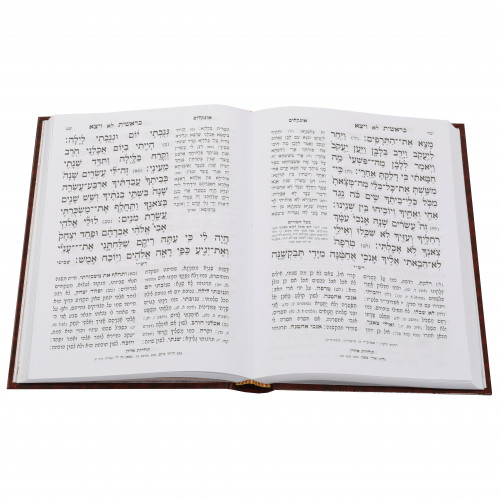Welcome to Hollywood Home Learning

Religious Study - Chumash
Price
$1250
Duration
12 Weeks
About the Course
8th Grade Chumash
Course Description:
The 8th Grade Chumash class offers students an in-depth study of the Torah, focusing on specific portions of the Chumash with commentaries from classical sources such as Rashi, Ramban, Ibn Ezra, and others. This course aims to deepen students’ understanding of the Biblical text, its historical context, and its relevance to modern life. Through careful study and analysis, students will develop skills in Hebrew language comprehension, textual interpretation, and critical thinking.
Course Objectives:
Textual Comprehension and Analysis:
Develop proficiency in reading and translating the Chumash in its original Hebrew.
Analyze the structure and meaning of Biblical texts, including key narratives and laws.
Exploring Classical Commentaries:
Engage with classical commentaries to gain insights into the text and explore multiple interpretations.
Compare and contrast different perspectives from commentators like Rashi, Ramban, and others.
Understanding Historical and Cultural Context:
Explore the historical and cultural context of the Chumash, including the lives and challenges of the patriarchs, matriarchs, and early Israelite society.
Discuss the relevance of Biblical teachings in contemporary times.
Developing Critical Thinking Skills:
Formulate and articulate questions and insights about the text.
Engage in discussions and debates about ethical and moral lessons derived from the Chumash.
Application of Lessons and Values:
Identify and apply the values and lessons learned from the Chumash to students' personal lives and modern-day situations.
Explore themes such as leadership, faith, justice, and responsibility.
Key Topics:
Torah Portions:
Study selected portions from books such as Bereishit (Genesis), Shemot (Exodus), or Vayikra (Leviticus), depending on the curriculum focus.
Analyze significant stories and laws, such as the Creation, Exodus, and commandments.
Classical Commentaries:
Rashi: Understanding Rashi's pshat (simple) and drash (interpretative) approaches.
Ramban: Exploring philosophical and mystical insights.
Ibn Ezra and Others: Additional perspectives on grammar and historical context.
Themes and Concepts:
Faith and Trust: Examining examples of faith in the Chumash and their implications.
Leadership and Responsibility: Studying the leadership roles of figures like Moses and Joseph.
Ethical Teachings: Exploring mitzvot (commandments) and their ethical applications.
Instructional Strategies:
Chavruta Learning: Encourage paired study sessions where students discuss and analyze texts together, promoting collaboration and deeper understanding.
Interactive Discussions: Facilitate classroom discussions that allow students to share insights and ask questions, fostering a dynamic learning environment.
Textual Analysis: Guide students through close readings of the text, focusing on language, grammar, and literary techniques.
Project-Based Learning: Assign projects that require research and creative presentations on specific themes or characters from the Chumash.
Technology Integration: Use digital tools and resources, such as online commentaries and interactive platforms, to enhance the study of Chumash.
Assessment:
Formative Assessments: Regular quizzes, translation exercises, and comprehension questions to assess understanding and progress.
Summative Assessments: Tests and essays evaluating students' knowledge of specific Torah portions and their ability to analyze commentaries.
Projects and Presentations: Creative assignments that require students to research and present on topics related to the Chumash.
Participation: Active involvement in class discussions and chavruta sessions is encouraged and assessed.
Additional Resources:
Textbooks: "The Stone Chumash" with commentary by Artscroll and other supplementary Chumash texts with commentary.
Online Resources: Sefaria.org for accessing a wide range of Torah texts and commentaries.
Supplemental Reading: Books and articles that provide historical context and insights into the lives of Biblical figures.
Expectations and Policies:
Attendance: Regular attendance is crucial for success in this course. Students are expected to attend all classes and participate actively.
Homework: Assignments are given to reinforce classroom learning and are expected to be completed on time.
Participation: Active participation in class discussions, chavruta learning, and group activities is encouraged to enhance learning experiences.
Academic Integrity: Students must uphold the highest standards of academic integrity and honesty.
Respectful Communication: Students are expected to communicate respectfully and constructively with peers and instructors.
Your Instructor
TBD